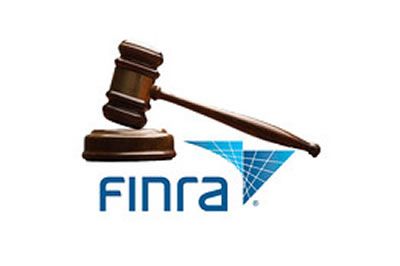Trying to recover losses with a FINRA arbitration can be overwhelming. Our law firm regularly handles large, complex, cases involving multiple and even tens of millions of dollars for clients. While many securities arbitration lawyers and law firms make it quite clear that they are not interested in speaking to investors with losses below $100,000, our law firm is available to help all investors with losses, whether the losses are big or small. We know that what may appear as a small loss to some investors, may very well be a big deal to others. No one should feel intimated about picking up the phone and understanding their rights. Every prospective client is equally important in our view!
Our law firm is uniquely equipped to not only assist investors with loss claims of any size, and will provide clients with smaller claims the same high level of service that every one of our law firm clients deserves. Some investors with smaller claims are inclined to use a general practitioner or someone who dabbles in these types of cases. If you are an investor considering your options, please take a moment to consider what choices will put you in the best position possible to maximize your recovery of your losses.
FINRA Arbitration Process
Table of Contents
Our experienced team has the knowledge, as well as the experience, to help you maximize your potential recovery. No matter the size of the claim or the loss, your case may involve complex legal or regulatory issues, and knowing what documents you will need to request, which key witnesses may be needed, could make the difference between winning and losing, or could make the difference between a small settlement and a more substantial recovery in your case.

While the Financial Industry Regulatory Authority (FINRA) Office of Dispute Resolution created a forum that offers customers with losses an opportunity to file a private arbitration dispute and a process that is a quicker, low cost alternative to proceeding in state or federal court, the FINRA customer dispute process can be intimidating to a customer who is trying to figure out the rules and the process on their own for the first time.What’s more, legal assistance and services may be limited for those with small claims. Although the FINRA arbitration process is comparatively low cost compared to court, the time and costs associated with pursuing a case make it prohibitive for customers seeking to recover relatively low losses.
FINRA Simplified Arbitrations
Very often, individuals seeking to recover minimal damages will find it very difficult to find an attorney to represent them. The hourly fees charged by most attorneys will often eclipse the damages sought, making FINRA arbitration unattractive to the potential client. Or, the potential recovery for these low damage cases makes it difficult for attorneys to proceed under a standard contingency agreement. What results are small claims that are for those investors significant issues, who may be unable to find counsel to represent them. FINRA has recently instituted a Simplified Arbitration process for individuals seeking damages of less than a threshold amount, currently $50,000.
FINRA Arbitration Process and Timeline
The Simplified Arbitrations before FINRA are heard by a single arbitrator (as compared to a three arbitrator panel). The other significant difference between the Simplified and traditional FINRA arbitration is that a Simplified Arbitration can also be decided without an in-person final hearing (and the significant costs associated with that process).
With an opportunity to have a customer dispute resolved with the help of an experienced securities arbitration attorney while also avoiding some of the potential costs of a final hearing such as witness preparation, travel, expert witness testimony or travel, preparation of exhibits for the hearing, etc. This even more streamlined process provides an avenue for dispute resolution that is event faster, involves more limited motion practice, includes no required discovery obligations, and a couple of interesting options for a final resolution that are not available in a traditional FINRA arbitration.
Instead of a final hearing with three arbitrators where witnesses are questioned and evidence submitted to the arbitration panel, a FINRA Simplified Arbitration can be decided (a) with no hearing and only based on the arguments and evidence submitted on the papers; (b) with a special proceeding that includes an abbreviated telephone conference with no opportunity for cross examination; or (c) a regular in-person hearing before a single arbitrator. For customers seeking to recover investment losses, each of the options above presents different issues and should be given consideration by investors only after having an opportunity to discuss those options with an experienced securities arbitration attorney.
Another major difference in FINRA Simplified Arbitration is the discovery process (the exchange of documents and information relevant to the matter). In a traditional arbitration, documents identified within the FINRA Discovery Guide are presumptively discoverable. The parties are required to produce the documents referenced in the FINRA Discovery Guide or otherwise object to their production. However, as the FINRA Discovery Guide is not used in Simplified Arbitrations, it is important that investors seek the advice of experienced securities arbitration attorneys so that they are sure that they are properly requesting the documents and information from the opposing side that will help them maximize their potential recovery.
Arbitration and Mediation Notices
Parties to a FINRA Simplified Arbitration must make discovery requests, and the time limits related to discovery are different. With no prehearing scheduling telephone conference in a FINRA Simplified Arbitration (unless the party initiating the arbitration requests that an in-person hearing be held), all discovery requests must be made within 30 days of the Answer, greatly decreasing the time that parties have to prepare their discovery requests, and greatly increasing the chances that a missed deadline could significantly impact the value of an investor’s claim.
Another consideration for investors in a FINRA Simplified Arbitration is that an arbitrator is likely to limit the parties in discovery in an effort to further streamline the process. As a result, parties should focus on preparing well-crafted discovery requests that are limited in their breadth and scope. In short, investors may wish to seek the assistance of experienced securities arbitration counsel as the opportunity to obtain the necessary evidence to prove the claim(s) is likely to be a more limited opportunity.
Also, the time for responding to discovery requests in a FINRA Simplified Arbitration is drastically different. Parties in a traditional three arbitrator Panel arbitration have 60 days from the date they receive a discovery request to provide responses and objections to same. In a FINRA Simplified Arbitration, the parties have only 10 days from that date they receive discovery requests to provide responses and objections. As a result, if you are filing a FINRA Simplified Arbitration, it is advisable to have all documents and information relevant to the dispute ready for production as soon as possible, and you should know what documents, information, and evidence you are going to need from the other side.
Our goal in any case, large or small is to help you maximize your potential recovery.


